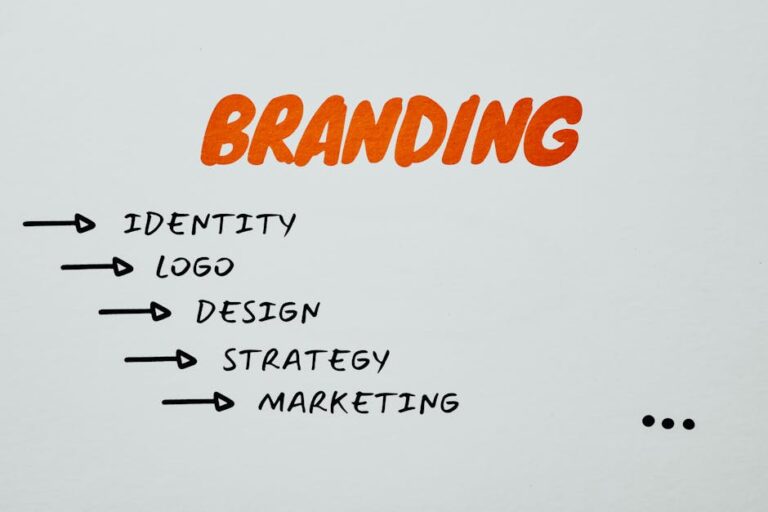6 Branding Misconceptions That. Just. Won’t. Die
You’ve likely heard the term “branding” used in a few different ways, so maybe you have a picture of what branding looks like in your head. Is it that bright red Target logo? Or maybe it’s that catchy jingle you can’t get out of your head. Or maybe you don’t have a clear picture of what branding is — you just know it’s important. And it is important. Branding is essential to any growing business because it defines what you are and what you stand for. It makes you recognizable to customers, and it helps you deliver a consistent product customer experience. But sometimes, when talking about branding, it makes more sense to talk about what it isn’t. Here are six of the most common branding misconceptions.
1. Small Businesses Shouldn’t Worry About Branding
Think branding is just for the big guys? That just isn’t true. Of course, the biggest brands, like Nike, Google, and Coca-Cola, are some of the most recognizable. But you don’t have to be a global corporation to make branding work for you. In fact, focusing on your branding when you’re still small can be beneficial.
Why?
Because your branding is all about your business’s values, goals, and identity. If you’re able to identify these from the very beginning, you’ll be more likely to stay true to your brand as you grow. This means that customers are more likely to stay loyal to you (which is important for businesses of any size) because you won’t constantly be changing what you stand for and what you represent.
If you think that only big corporations have the money to spend on branding, add that to the list of branding misconceptions. Even a small investment in your branding can have a big impact. After all, branding isn’t just a product that you can buy off the shelf. Branding solutions should be tailored to your business’s unique story.
2. Spending Money on Branding Isn’t Worth It
Branding, when done correctly, doesn’t have to break the bank. Though some people believe that the effects of branding are difficult to measure and quantify, branding can have a serious impact on your bottom line.
If you’re still hesitant about setting aside part of your budget to focus put towards branding, listen to this. Nearly half of consumers are willing to pay more for brands they are loyal to. Spending money on branding now can pay back in dividends later. Having a recognizable brand can bring in repeat customers, and most marketers agree that it takes fewer resources to retain current customers than acquire new ones.
Plus, when you put money into your branding, it will boost your professionalism and give you an edge over your competition, which adds value to your business.
3. You Need to Create a Brand for Everyone
Who should your brand appeal to? If you answered “everyone,” you may be spreading yourself too thin. Your company’s branding doesn’t have to appeal to every single person out there. Trying to appeal to everyone won’t make you more money.
Instead, focus on a small segment of people known as your target audience. When you have a clear idea of who you’re trying to appeal to, you can develop a more focused approach to your sales, marketing, and customer service. Getting to know your target audience means learning what they want from a brand, what their needs are, what potential problems they may have, and how your brand can solve them.
When you know your target audience inside and out, you know what appeals to them and what makes them tick. Your brand should be a match to their values and sensibilities.
4. Branding Is All About How Things Look
Branding is your logo, your colors, and your custom graphics, right? That’s partly true, but branding is about much more than just visual elements. This means that your branding also encompasses your business’s unique voice and what kind of experience you strive to deliver to your customers. Think about all the content your business creates, whether it’s blog posts, web content, videos, or social media posts. Any content you create should reflect your branding. Great branding runs deep. It’s something your employees can live by. It permeates your management and the space you occupy. Branding runs the business. And if you just focus on visuals, you’re letting branding misconceptions run your business.
While this creates a bit of ambiguity about what exactly branding encompasses, think about what you want your customers to imagine when they visualize your brand and work to reflect that in everything that your business does. This means that branding is more than just a flashy logo.
5. Branding Is Just Advertising and Marketing
While branding is tangentially related to both advertising and marketing, it doesn’t end there. Branding extends into every aspect of your business. While marketing and advertising usually focus on specific, measurable goals, branding is more long-term and less well-defined. Great branding doesn’t always focus on measuring key performance indicators or getting people to buy more products (though branding absolutely affects sales). Branding is more about staying true to a defined set of values that customers have come to expect from your business so that they always have a dependable experience every time they interact with you.
Great branding should be a focus not only for your marketing department but also for your sales and service departments. It’s all about how customers perceive you as a business, so every element of your brand that people connect with should be consistent.
6. Branding Should Follow Trends
If you pay any attention to design and branding trends, you know that they’re always changing. Does this mean that your business should rebrand to stay relevant? Not always. While trends are always in flux, you want your brand to last. When your brand is always changing, people don’t know what to expect from you, and they might not have the desire to stay loyal. Customers crave stability from their favorite brands, and you can deliver this by staying consistent.
Focus your brand on longevity and a vision that will outlast trends instead of changing things up every few months. Your customers will appreciate you staying true to your enduring mission rather than simply moving with the fashions.
Avoid These Branding Misconceptions — Branding Success Made Simple
You can probably rattle off a dozen companies that are doing branding well. Besides the others mentioned in this article, people around the world can instantly recognize Apple, Amazon, Facebook, Microsoft, and Disney. Though the most famous brands are worth millions, or even billions, they are all following branding steps that you can replicate without falling prey to these branding misconceptions. Each of these brands strives to tell a story that stirs their audience’s emotions and connects with them on a personal level, and you can do this, too. Zen Agency can help you use storytelling to bring your brand to life, so contact us today to get started!


















